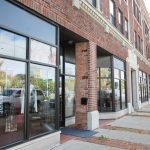The third executive budget of Governor Whitmer’s term in leadership has been unveiled, with a heavy focus on schools, infrastructure and getting Michigan back to work. The budget for 2022 aims to work alongside Whitmer’s Michigan COVID Recovery Plan that was released in January by working to provide critical support for Michiganders amid the ongoing pandemic.
“To build Michigan’s economy back better, we must stay laser-focused on getting Michigan back to work and getting our kids back in school safely,” shared Gov. Whitmer while announcing the 2022 budget. “The budget plan I released today along with the MI COVID Recovery plan I announced last month makes the investments we need to jumpstart our economy and build a better Michigan for everyone. I am committed to working across the aisle with the legislature to ensure that we don’t waste a dime of the federal aid we have received thus far, so we can help Michigan families and small businesses get back on their feet. Let’s get to work and let’s get it done.”
ECONOMIC AND SCHOOL SUPPORT IN THE 2022 BUDGET
The document for 2022 is dense, packing a lot into the 187-page document released by the governor, including support for schools. As part of the budget, Michigan K-12 schools will see the largest investment in history, with a 164 per-pupil increase in funding.
Besides the $203 million increase to base per-pupil funding, the budget also calls for a 2 percent increase — about $14.1 million total — for economically disadvantaged students, English language learners, special education students, and students residing in rural or isolated districts.
To help recover from the impact of COVID-19 on schooling, there is also an allocation of $38.9 million for public and $86.8 million for private nonpublic learning institutions as part of the Education Emergency Relief Fund, as well as $2.9 million to address the current shortage of teachers in Michigan.
$55 million will also be allocated to repair and replace drinking water fixtures as part of the Filters First program aimed at providing Michigan students with access to clean drinking water.
Commenting on the education focus, Michigan Teacher of the Year, Owen Bondono shared, “The pandemic has highlighted both the importance of schools to our society and our pre-existing struggles to meet students’ needs. After the experiences of the last school year, it is important that we provide safe and flexible learning opportunities that do not simply return us to pre-pandemic standards but close the opportunity gap for learners across the state. Governor Whitmer’s budget recommendation represents much-needed materials, resources, programs, infrastructure, and personnel that will empower educators to meet the diverse needs of Michigan learners.”
The budget also calls for funding based on economic recovery that includes $370 million for the expansion of childcare options, $60 million one-time for the Futures for Frontliners program, $15 million one-time increase for the Going Pro program to expand employer-based training grants, and a $25 million one-time investment into the Mobility Futures Initiative aimed at addressing environmental sustainability.
Other economic recovery and support investment includes a one-time payment of $1 million to the nonprofit Focus: HOPE, which aims to “support workforce development, youth development, and community empowerment and advocacy programs.”
THE PANDEMIC AND PUBLIC HEALTH
Given the persistent pandemic, the 2022 budget focuses heavily on the health of Michigan families by offering to fund the vaccine rollout and other public health matters.
$360 million is allocated to sustain a permanent direct care wage increase of $2 for direct care workers, $38 million will be devoted to a one-time “nursing home COVID supplemental payment” to address lost revenue over the past year and $91 million is allocated to improving access to behavioral health programs for Medicaid enrollees. MiChoice program will also be expanded, receiving $19 million, while the Lead Poisoning Prevention Fund will receive $10 million.
The Race, Equity, Diversity, and Inclusion Office will also receive $2.1 million to “promote racial equity and inclusion in DHHS-administered services,” while $8.4 million will be invested to reduce health disparities and expand the use of community data to enhance health coverage as part of the Michigan Health Information Network.
“AARP research shows that the overwhelming majority of Michigan residents prefer to age in place in their own homes and communities. Also, rebalancing Michigan’s long-term care system — allowing a greater share of the people who need services to remain in their own homes — can also save taxpayer dollars,” shared Lisa Dedden Cooper, manager of advocacy at AARP Michigan, while commenting on the budget. “Medicaid dollars can support nearly three older adults in-home and community-based services for every one person in a nursing home. We applaud Governor Whitmer for expanding the MiChoice program to provide critical alternatives to those in nursing home care.”
INFRASTRUCTURE AND THE ENVIRONMENT
The last two major points addressed in the budget are Michigan’s infrastructure and promoting clean energy and the environment.
$300 million is allocated to repairing local bridge’s, with 120 in serious condition slated to be replaced, the MI Clean Water Plan will receive $290 million in infrastructure grants aimed at addressing sewer overflows and $40 million will be used to fund “high water level and resilient infrastructure” to address coastal erosion, flooding, urban heat and more.
Following the disaster that occurred with the Edenville and Sanford dams, $15 million will also be invested into the Dam Safety Emergency Fund to address situations where “dam owners are unwilling or unable to mitigate hazards caused by dam malfunction.”
In regard to energy and the environment, $20 million is being invested in cleanup to support rapid response efforts in contaminated sites, $5 million will go to the State Facility Green Revolving Fund to promote energy efficiency and renewable energy projects, while $5 million in grants will go into supporting the purchase of propane tanks to help match Michigan’s energy needs.
Lastly, the Michigan Saves Green Bank will receive $5 million to leverage private investment in clean energy improvements, which should promote $150 million in private capital for clean energy across the state.
“As business leaders focused on protecting the Great Lakes, we appreciate seeing in this budget a continued commitment to advancing solutions to transition to a clean energy economy and ensuring the Great Lakes are protected by investing in critical water infrastructure needs across the state,” stated Bob Sutherland, president and CEO of Cherry Republic in Glen Arbor, and chairman of the Great Lakes Business Network Clean Energy Working Group, while commenting on the budget.
The complete budget may be read at michigan.gov. Be sure to subscribe to our newsletter for regular updates on all things Detroit and more.























